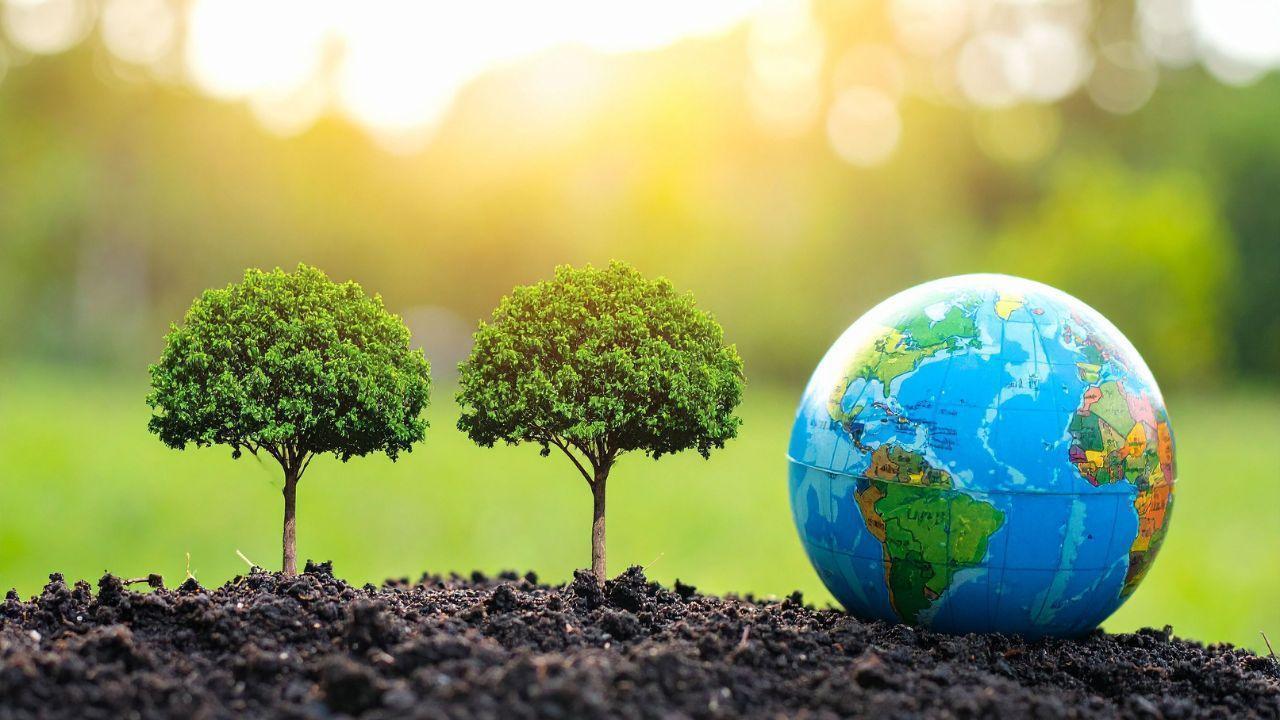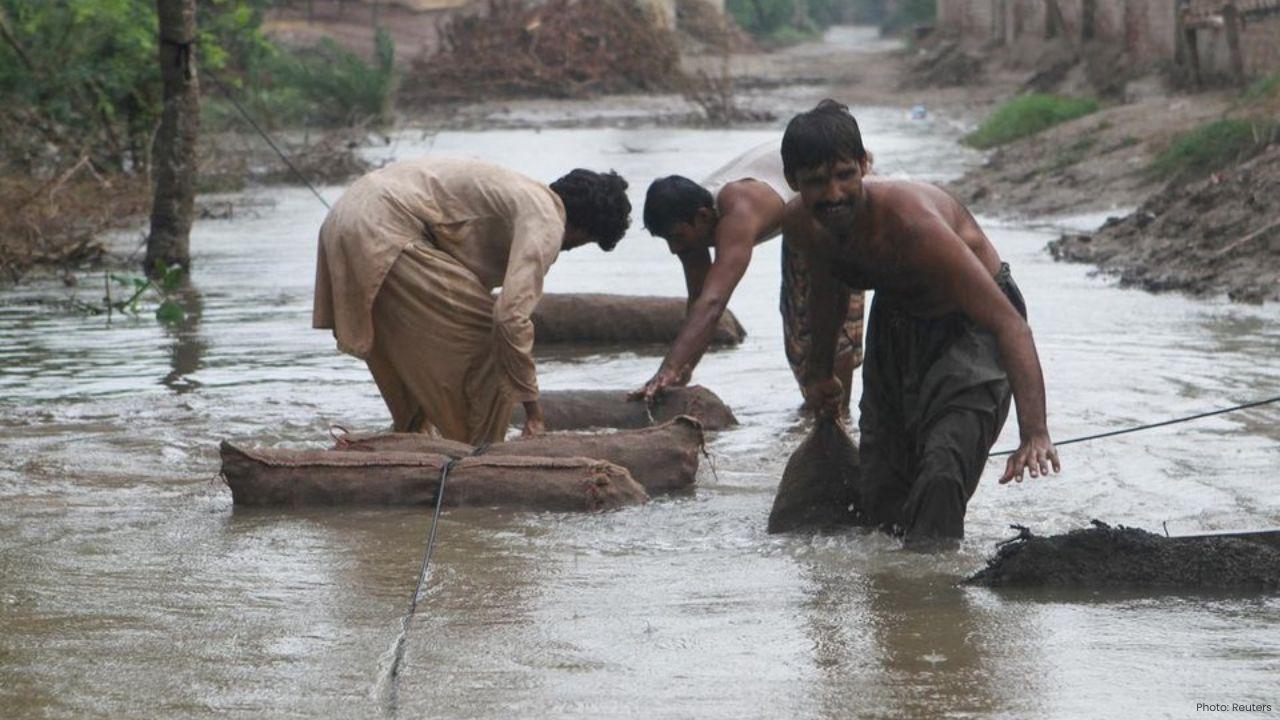
Post by : Vansh Kumar
In the past few decades, conversations about the environment have been dominated by one word: carbon. Reducing carbon emissions has understandably been the central goal in the fight against climate change, but environmental sustainability is about far more than just limiting greenhouse gases. As the world seeks a holistic approach to protecting the planet, it is important to recognize the new frontiers of environmental conservation—from biodiversity preservation to innovative technologies that can reshape our future.
When climate discussions began taking shape globally, the primary focus was on carbon emissions because of their direct role in global warming. Policies such as carbon taxes, carbon trading markets, and emission reduction pledges have taken center stage in international agreements. However, while these efforts remain crucial, they represent only one piece of the larger sustainability puzzle.
Environmental conservation requires a broader lens—addressing deforestation, water scarcity, ocean pollution, biodiversity loss, and soil degradation. If these pressing issues are ignored, the planet will continue to face unprecedented ecological crises despite reductions in carbon footprints.
One of the most urgent areas beyond carbon is biodiversity conservation. Healthy ecosystems are the backbone of life on Earth, ensuring food security, regulating climate, and providing natural resources. Yet, human activity has caused rapid species extinction rates, with millions of plants and animals under threat.
Protecting biodiversity means safeguarding forests, coral reefs, wetlands, and other ecosystems from destruction. For instance, rewilding initiatives, which involve reintroducing native species into habitats, have been gaining momentum. These projects not only restore ecosystems but also promote resilience against climate change.
While carbon grabs global attention, water conservation is equally critical. Freshwater scarcity is one of the most pressing challenges humanity faces. Climate change has made droughts more frequent and intense, threatening agriculture, drinking water supplies, and sanitation. Innovative solutions such as desalination, rainwater harvesting, and wastewater recycling are now seen as vital steps toward ensuring a sustainable water future.
Water ecosystems, like rivers, lakes, and wetlands, are also under immense pressure from pollution and over-extraction. Protecting these resources is just as important as reducing carbon, as they sustain billions of people and countless species.
The oceans absorb about a quarter of global carbon emissions and act as a climate regulator. However, they are under siege from plastic pollution, overfishing, and acidification. These challenges threaten marine biodiversity and coastal livelihoods. Efforts such as banning single-use plastics, creating marine protected areas, and regulating fishing practices are examples of how societies are broadening the conservation agenda.
Innovations like biodegradable materials and “blue carbon” initiatives, which focus on protecting coastal ecosystems like mangroves and seagrasses, highlight the future of ocean protection. These ecosystems not only absorb massive amounts of carbon but also provide storm protection and breeding grounds for marine species.
Another frontier that is reshaping environmental conservation is green technology. From renewable energy advancements to AI-driven monitoring of ecosystems, technology is enabling smarter, more efficient solutions.
For instance, drones and satellite imaging are now used to track deforestation in real time, while AI models predict patterns of biodiversity loss. Innovations in renewable energy—such as floating solar farms and offshore wind turbines—demonstrate how technology can reduce ecological strain while meeting the world’s energy needs.
Furthermore, the rise of the circular economy—designing products for reuse, recycling, and minimal waste—marks a transformative shift from traditional linear consumption models.
While science and technology are vital, environmental conservation cannot succeed without human involvement. Communities across the globe are redefining their relationship with nature by embracing sustainable farming, eco-tourism, and conservation-friendly lifestyles. Global cooperation is equally crucial, as environmental issues know no borders.
International agreements like the Paris Climate Accord and biodiversity frameworks offer pathways for joint action, but grassroots movements often lead the way in practical, everyday conservation efforts. From urban green spaces to zero-waste communities, collective participation is proving to be a powerful force.
Beyond science and policy, there is also an ethical dimension. Conserving the environment is not only about securing resources for the present generation but also ensuring justice for future generations. The principle of environmental stewardship is deeply tied to equity, fairness, and intergenerational responsibility. By moving beyond carbon, societies can foster a more balanced approach that values the planet holistically.
The shift from carbon-centered conversations to broader conservation frontiers is not about neglecting greenhouse gas reductions but about recognizing the bigger picture. True environmental progress lies in protecting biodiversity, conserving water, safeguarding oceans, and leveraging innovation for a sustainable future.
The journey beyond carbon represents a more inclusive, comprehensive vision—one that does not just count emissions but values ecosystems, people, and the intricate balance of life on Earth. It is a vision rooted in hope and action, demanding that every individual, community, and nation embrace their role in shaping a healthier, more sustainable planet.
The information provided in this article is intended for educational and awareness purposes only. While every effort has been made to ensure accuracy, readers are encouraged to further research and verify details before making decisions related to environmental conservation. The views expressed do not necessarily represent official policies or positions. This article is published under the editorial guidelines of GCC news network.
#trending #latest #BeyondCarbon #EnvironmentalConservation #SustainableFuture #EcoInnovation #ClimateAction #GreenPlanet #SustainabilityMatters #CleanEarth #EcoFriendlyLiving #FutureGenerations #GCCNews #GCCUpdates #GCCTech #GCCInnovation #ArabWorldNews #GCCTrends #DigitalGCC #GCCBusiness #GCCFuture #GCCTechnology #GCCInsights










Three Injured After Ceiling Collapse At Liat Towers Singapore
Three people were injured after a ceiling collapsed at Liat Towers, Singapore. Eyewitnesses helped v

US Authorities Arrest Suspect In Charlie Kirk Shooting Case
US President Trump confirms suspect in Charlie Kirk shooting has been arrested after a minister turn

EU Regulators Approve Microsoft Teams Changes To End Antitrust Case
Microsoft Teams update, EU antitrust decision, Office software changes, competition rules compliance

Pakistan Prepares To Face Oman In Asia Cup Before India Clash
Pakistan prepares for Asia Cup opener against Oman, aiming for a strong start and building confidenc

Rescue Boat Capsizes in Pakistan Floods, 9 Dead in Multan
A rescue boat capsized during flood relief in Multan, Pakistan, killing nine. Floods affect millions

Bangladesh Beat Hong Kong In Asia Cup Opener With Litton’s 59
Bangladesh began their Asia Cup with a win against Hong Kong. Litton Das scored 59 and Hridoy added